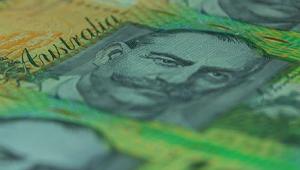The news, announced by Nigeria’s National Bureau of Statistics, follows a 0.36% shrinking of Africa’s largest economy in the first three months of the year.
Nigeria’s once-booming economy has been hard hit by the collapse in oil prices and has suffered huge production cuts due to an insurgency in the country’s main oil producing region, the Niger Delta. Militants have destroyed pipelines in protest of the fact the country’s most oil-rich territory remains poverty stricken.
While the recession was widely expected, the second quarter’s contraction was worse than forecast, with analysts predicting the fall at closer to 1%.
The International Monetary Fund predicts Nigeria’s economy will shrink by 1.8% in 2016 overall – a projection that Nigerian officials, including finance minister Kemi Adeosun, have agreed with.
Dr Yemi Kale, chief executive of the NBS, sent out a series of gloomy tweets this morning, outlining the figures for each sector.
39. Non oil GDP contracts by -0.38% in q2 2016 from -0.18% in q1 2016 and 3.46% in q2 2015
— Dr Yemi Kale (@sgyemikale) 31 August 2016
Attempts are being made to diversify the Nigerian economy and make it less dependent on oil. In this respect, gains were made across several sectors, including agriculture, information and communication, water supply, professional scientific and technical services, and education.
Overall, however, the non-oil sector declined by 0.38% in real terms, with 19 major sub-sectors recording negative growth. Many of these are dependent on oil, including electricity and gas, manufacturing, construction, real estate and transport.
The recent devaluation of the naira also failed to entice foreign investors back into the market. Foreign direct investment declined from $174.4m in quarter one to $133m in quarter two, compared with $211.1m during the same period last year.
An NBS labour productivity report, also released today, brought further bad news for employment in the country.
5. Formal sector jobs have been declining consistently since q3 2015 inline with d general slow down of eco activity pic.twitter.com/23jmGrnBxe
— Dr Yemi Kale (@sgyemikale) 31 August 2016
Earlier this week, the Central Bank of Nigeria also disclosed that the government ran a record deficit of 1.09tn naira ($3.4bn) in the second quarter, compared with a planned shortfall of 555bn naira ($1.76bn). The government has budgeted for an $11bn deficit for 2016, twice that of the year before.
President Muhammadu Buhari’s government signed a record budget into law this May, tripling capital expenditure, in hopes of revitalising the country’s flagging economy.
However, with oil receipts plunging far below expectations, and the deficit and public debt on a steep ascent, observers have questioned how sensible it is to continue to pursue the ambitious spending. So far, budget implementation has also been plagued by delays.
Elected on an anti-corruption ticket, Buhari has led a campaign against graft, mismanagement and waste. On Monday, his government announced that it had begun training 800 planning and budget officers from various departments nationwide in zero-based budgeting, which will be introduced fully in the country in 2017.
It has been reported that 4,254 officers will be trained in the method, under which all expenses must be justified through analysis at the beginning of each new period.
Nigeria’s minister of budget and planning, Udoma Udo Udoma, explained that the training will equip budget and planning officers with the knowledge, skills and tools needed to implement zero-based budgeting next year.
They will also learn to grasp medium-term expenditure frameworks, medium-term fiscal and sector strategy, strategic allocations that align with government priorities and the concept of “budget realism”, where resources are provided on a more predictable basis enabling better execution.
“This will enable the officers to deliver services effectively and efficiently,” he said.













